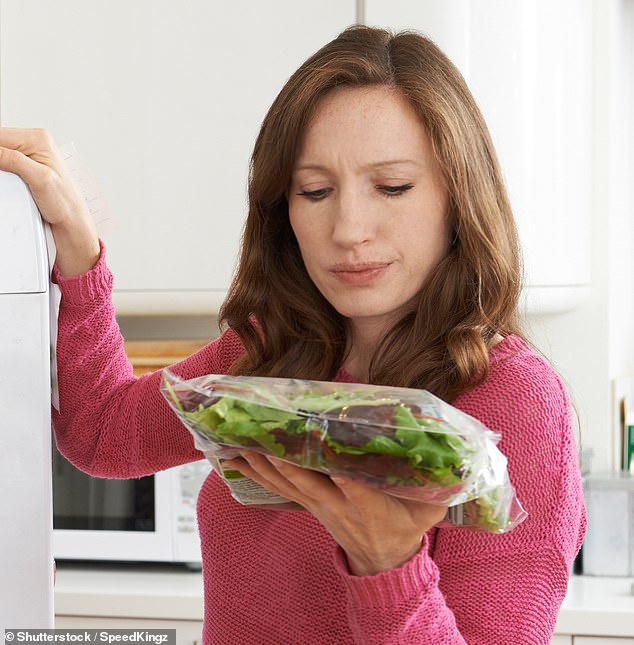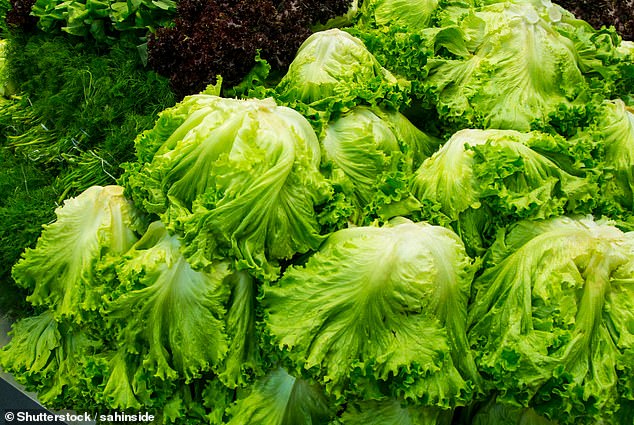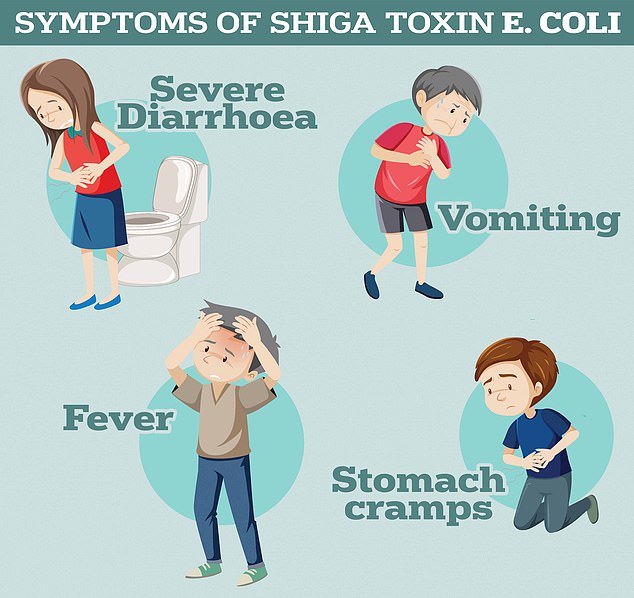Health chiefs have sounded the alarm over ready-to-eat salad bags due to potentially-deadly contamination fears, amid an alarming rise in food poisoning outbreaks across the UK.
Inspections have found evidence of a life-threatening bug that can cause severe brain damage and breathing difficulties in pre-prepared salad leaves sold across Europe, including the UK.
Scientists collected 3,320 salad samples between October 2021 and September 2022 and found that at least four per cent of the leaves were contaminated with toxoplasma gondii oocysts.
This bacteria can be passed on via contact with animal faeces, which contaminate food and water, making salad that is not washed properly a breeding ground for the bug.
What’s more, writing in the journal Eurosurveillance, the group of international scientists warned that contamination could be far more widespread, as manufacturers are not required by UK or EU law to systematically test or inspect fresh produce for foodborne parasites.
Research by the National Institute of Health suggests that half of the UK population show signs of past infection by the age of 50, though most cases go unnoticed.
The nasty bug can cause flu-like symptoms and muscle aches and pains. However, it can be fatal.
People who have a weakened immune system, such as cancer patients, are at an increased risk of infection, known as toxoplasmosis.

According to experts, just because a salad is labelled washed and ready-to-eat this does not mean it is free from bacteria
This can cause severe neurological and respiratory complications which can be fatal, causing damage to the brain, eyes, heart and lungs.
Catching this infection during pregnancy can be particularly dangerous, resulting in spontaneous miscarriage and fetal abnormalities, the NHS warns.
If people become seriously ill, they may need hospital care because the damage can be life-threatening.
However, most cases will clear up on their own or can be treated with a course of antibiotics.
Samples of the leaves were collected in the Czech Republic, Denmark, France, Germany, Italy, Norway, Poland, Portugal, Spain and the UK.
Most positive samples were collected in winter and packaged in the UK, France, Portugal, Spain and Denmark.
Scientists have urged for better control measures to help protect consumers against infection.
‘This is particularly relevant since ready-to-eat salads are intended to be consumed raw without any further treatment by the consumer’, they wrote.

Last year, more than 280 people were struck down by STEC in an outbreak linked to ready meal sandwiches containing contaminated lettuce grown in the UK. Expert are confident a type of butterhead lettuce , named Apollo, is behind the outbreak.

Symptoms of Shiga toxin-producing E.coli include severe diarrhoea and vomiting, according to the UK Health Security Agency
‘Future work should investigate presence of [the parasite] in different steps of the ready-to-eat production to minimise infection risk for humans.’
The warning follows alerts from health watchdogs about a significant rise in serious food poisoning cases.
In April this year, health officials sounded the alarm over a worrying surge in serious cases of a rare strain of E.coli called STEC—a bacterial infection that’s been linked to colon cancer.
Symptoms can vary from stomach cramps and vomiting to bloody diarrhoea, UKHSA says.
But in more serious cases, STEC can cause life-threatening kidney failure, serious blood clotting disorders and even bowel cancer.
Research published earlier this year found trace of colibactin, a cancer-linked toxin which is produced by certain strains of STEC, have been found lurking in tumors from patients under 40.
Following this outbreak, 288 patients were struck by the harmful strain, causing nine cases of haemolytic uremic syndrome (HUS) — a life-threatening condition that can lead to kidney failure —and three deaths, the latest UKHSA figures show.
Food safety chiefs said they were confident a type of butterhead lettuce, named Apollo, was behind the outbreak of the diarrhoea-causing bug.

Last year, a 17-year-old girl from Buckinghamshire was left fighting for her life after contracting the deadly E. Coli strain. Antonia Hay is believed to have caught STEC-HUS, caused by E. coli O157, from food at a Christmas market in Great Missenden
Experts believe lettuce’s texture can make it more prone to the bacteria and the fact it’s not cooked, which would usually kill off bugs, increases the risk.
Rates of the dangerous strain have risen almost 10-fold in England in just seven years, fresh figures show.
According to Experts there are a number of factors driving the surge in E.coli cases— including climate change, more vigilant reporting by hospitals and a rise in the number of people vulnerable to severe illness.
It may also be the case that more shoppers are opting for prime sources of the bug, such as lettuce, either via ready made sandwiches or bagged salads.
Studies suggest leafy greens are responsible for half of all E.coli outbreaks.
Professor Paul Hunter, a renowned infectious diseases expert from the University of East Anglia told MailOnline: ‘Watering during growth allows the potentially contaminated water to rest on the lettuce leaf.
‘The rough and waxy surface of the leaf also makes it difficult to wash off E. coli.
‘As to whether E. coli can enter the tissue of the lettuce, probably it can, though the evidence is somewhat conflicting.
‘The main risk comes from bacteria attached to the leaf surface. Most other vegetables are either peeled or cooked before eating.
‘We also found bagged lettuce already prepared for use to be a common factor.’
Experts say all salad should be washed thoroughly by immersing in cold water.
Storage of vegetables is also key: if salad bags are in the fridge and the temperature is less than four degrees, bacteria will not multiply as rapidly.
Experts also say recent wet, warm weather can creates an ‘ideal’ breeding ground for E. coli to spread.
The FSA recorded 1,825 food and feed safety incidents in the UK alone during 2024-25.
Out of the 436 recorded incidence involving food contamination, Salmonella was the most recorded cause. Listeria and hepatis A are also on the rise, according to the food standards watchdog.











